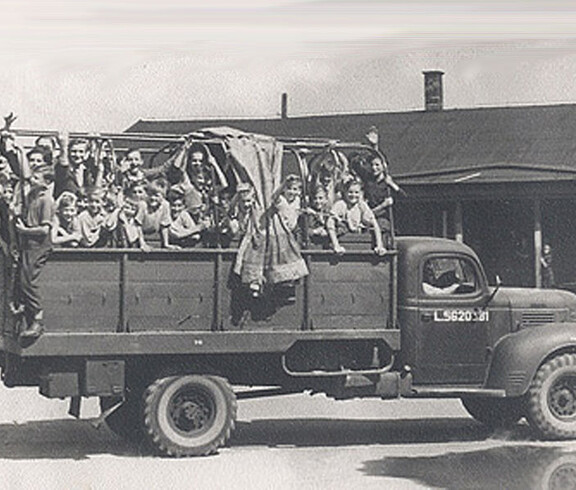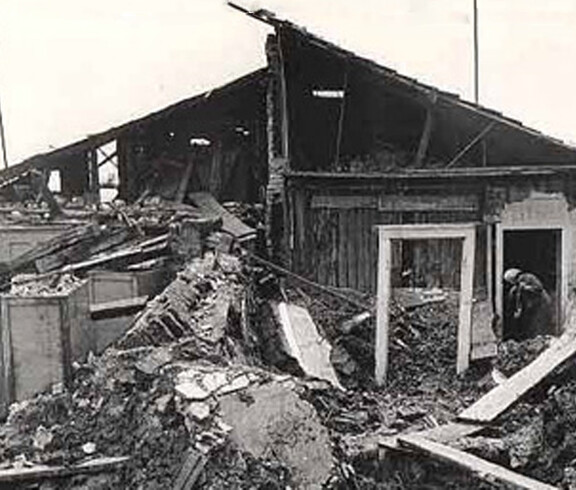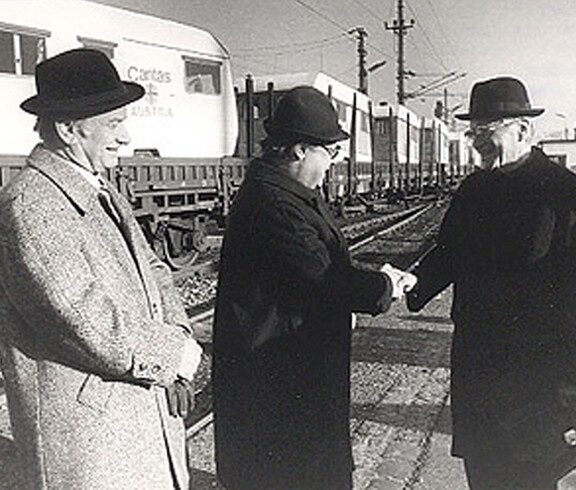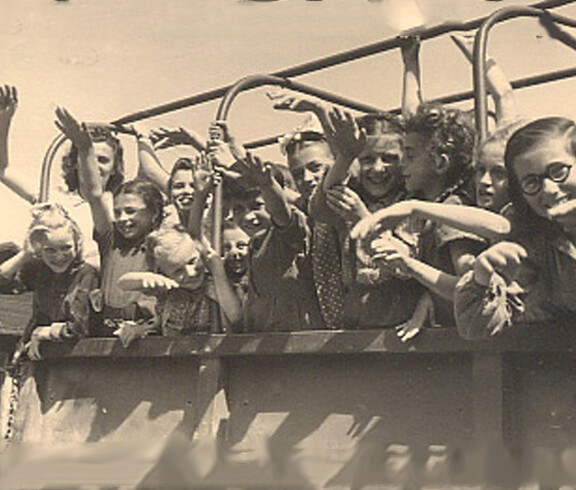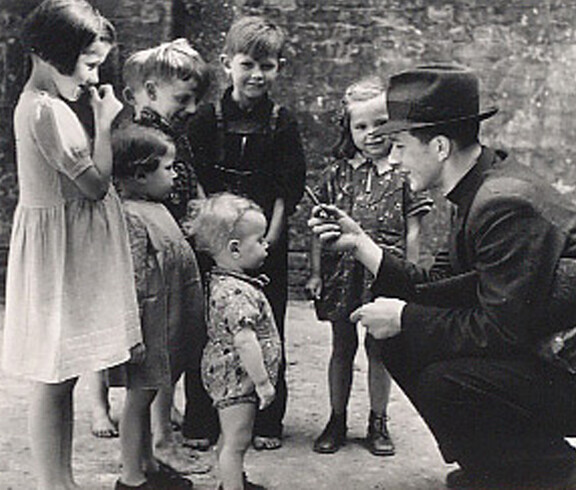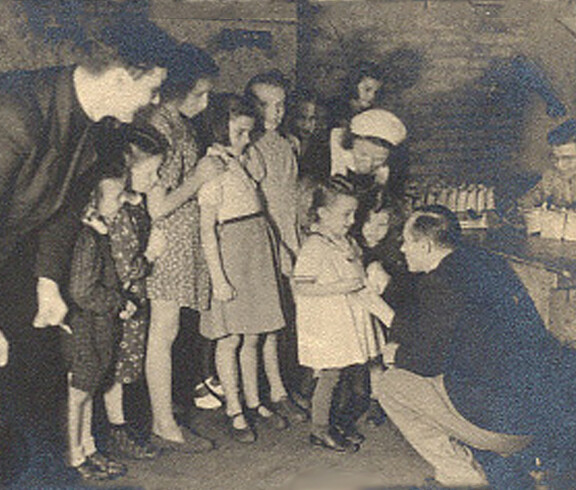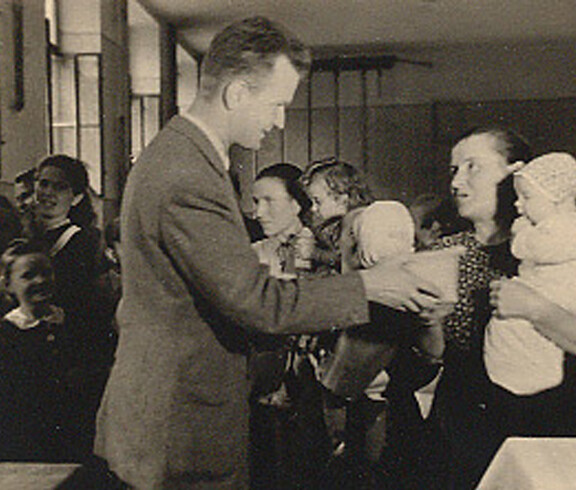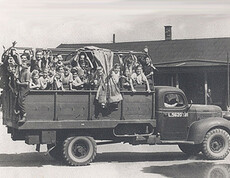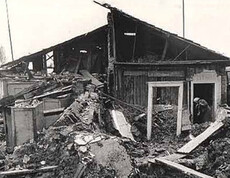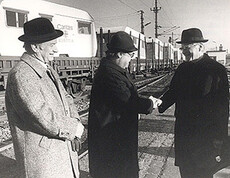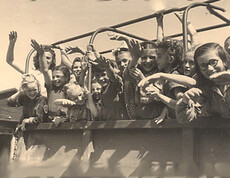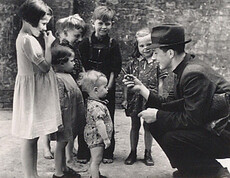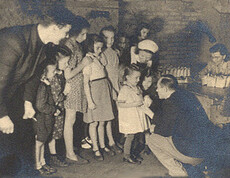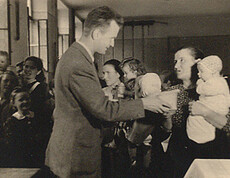Caritas since 1900
The early days
Shortly after the turn of the century, first Caritas congresses are taking place in Austria in the early 20th century. Still before the outbreak of World War I it was decided to establish Caritas associations based on the German model. In this way help can be better coordinated.
In the first few decades, Caritas work is above all emergency aid: outpourings and garments alleviate the plight of the population during and after the First World War. As part of the children's recovery action, thousands of urban children find rest with families in the countryside. The "Caritas mortality provision" offered poor people the opportunity to secure a Christian funeral. The "railway mission" of Caritas cared mainly about traveling girls, returnees, displaced persons and refugees.
Oppression by the Nazi regime
Despite severe hindrance and the dissolution of aid organizations, the work continued: "Non-Aryan" families received help and emigrant care. A relief center in the Archbishop's Palace in Vienna housed persecuted Catholics. Jewish children were issued with baptismal certificates to protect them from the Nazis.
Post-war period in Austria
At their first meeting shortly after the end of World War II, the Austrian Bishops' Conference decided to set up a Caritas organization in each diocese as an “episcopal work without a society's constitution”. Caritas help in post-war Austria was mainly domestic work: support for starving people, displaced people and war returnees. North America, Switzerland, Sweden and other states helped Austria with monetary and material donations, Caritas helped with the distribution.
In the first post-war years, 250,000 inquiries were processed to the "Central Search Service" of Caritas, 38,000 could be done with a positive outcome.
From 1949, numerous supporters from Caritas in the parishes asked for donations from the house collection.
“Children recreation activities”
… were re-organized after being banned in the years before by the NS-“Volkswohlfahrt”. All over Austria around 600,000 children and adolescents were cared for in 909 kindergartens and nursing homes during the period 1945-1955.
In 1948, the first Caritas family counselor was hired in Innsbruck, followed a little later by family counselors/assistant in Graz, Linz, Salzburg and Vorarlberg: the family assistant comes in if a mother can’t take care of her children because of illness or absence.
Founded in 1950 by Prelate Leopold Ungar, the SOS campaign asked for help for fellow citizens in distress in regional newspapers and on the radio. Originally intended only as a one-time action in a Catholic weekly magazine, it soon developed its own department.
The 60s until now
The "economic miracle years" had consequences: people, who cannot withstand the new burdens, became marginalized.
Family ties got loosen up; demands were rising, especially for single mothers. Caritas reacted to these social changes: The areas of activity were structured more strongly, new units were created. Individual assistance and social counseling replaced the emergency aid of the post-war period. Marriage, family and life coaching were expanded throughout Austria. Between 1955 and 1960, Caritas Linz, Graz and Feldkirch set up their own department for the care of people with alcohol problems. In 1964, Caritas Feldkirch opened its first workshop for disabled people. Healthcare and mobile care for the elderly were expanded throughout Austria. Many nursing homes were emerging.
New priorities
The development of assistance for homeless people was at focus of Austria's Caritas work in the eighties. The Viennese Caritas alone opened three houses for homeless women and men during this time. Caritas Innsbruck created housing facilities for homeless young people and managed an employment project for unemployed young adults. Throughout Austria, Caritas offered advice and assistance to people in financial difficulties. Work with disabled people was also expanded: small housing units were created where children and adults with disabilities experienced a protected atmosphere.
War and refugees
The collapse of the Eastern Bloc, the fall of the Iron Curtain and the war in former Yugoslavia triggered refugee and migration movements since the early 1990s. Caritas sent relief supplies to crisis areas and at the same time sets up counseling centers and shelters for refugees.
The work of Caritas now covers almost the entire area of human life: children, people with disabilities and refugees, accommodation for homeless and old people, mother and family assistance, training centers, mobile and inpatient care for the elderly, hospice services, care of alcoholics and drug addicts, mobile and inpatient care of homeless people, legal advice and projects for the long-term unemployed as well as disaster and development aid abroad.
